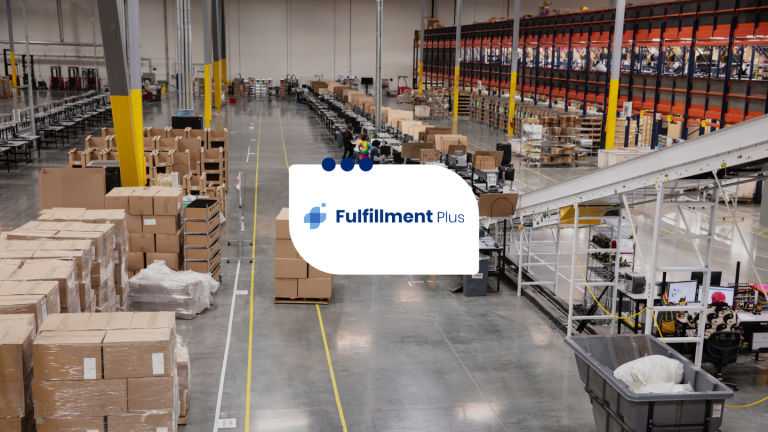What is Supply Chain Management?
Supply chain management is the flow of managing goods and services. Converting the raw materials into the finished product is the process of SCM. To increase customer value and achieve a competitive advantage in the market, streamlining of a business’s supply-side activities is required.
How does Supply Chain Management work?
Supply Chain Management (SCM) is an effort by the suppliers to design and carry out supply chains that are as effective and affordable as possible. It includes the production and development of the products and the necessary information systems to supervise these undertakings.
SCM basically controls the production, shipment, and distribution of a product. In order to deliver the products faster to the customer, the companies cut down extra costs by managing the supply chain better.
SCM works on the idea that mostly every product which comes to the market is a result of the efforts taken by various organizations that make up that supply chain. Most companies have very recently paid attention to supply chains though it existed for ages to add value to their operations.
5 Parts of SCM
The part of the manager is to keep track and reduce any shortages and maintain low costs. It is not only about logistics and purchasing inventory, but supervising, managing all the supply chain operations. Increasing efficiency and reducing the cost of the organization’s supply chain. Productivity and efficiency improvements are primary for any company. In supply chain management, the supply chain manager is responsible to coordinate the logistics of all aspects of the supply chain which consists of five parts:
Planning
To get the best results from supply chain management, the process starts with planning to meet the customer and manufacturing demands. The companies can know the future needs and can act according to them. This involves raw materials required during each stage of manufacturing, equipment capacity and limitations, and staffing needs along with the SCM process. Big companies often rely on ERP system elements to combine data and generate strategies.
Sourcing
Efficient SCM processes work when you have strong relationships with suppliers. Sourcing involves working with vendors to keep the supply of raw materials coming throughout the manufacturing process. The companies can also plan to source the goods in advance from the suppliers. However, different industries have different sourcing requirements.
But in general, SCM sourcing ensures:
- The raw materials are suitable for the manufacturing specification required for the production of goods
- The prices are relevant to the market expectations of the goods
- The vendor is able to send emergency materials required due to unexpected situations
- The vendor has a good record of delivering high-quality goods on time
Supply chain management becomes crucial when manufacturers work with fragile or delicate goods. When sourcing goods, companies should be mindful of the delivery time as well as how successfully the supplier can meet those requirements.
Manufacturing
Manufacturing is the main part of the process where companies convert raw materials by using machinery, labor, or any other external influences to create something new. This end product represents the ultimate goal of the manufacturing process but it is not the concluding phase of the supply chain.Additionally, the manufacturing process divides into categories like assembly, testing, inspection, and packaging During this process, companies must be conscious of waste and any other factors that may cause differences from the original goals.
Delivering
The company should make sure the products reach its customers on time once the products are made and sales are finalized. Since the customer has not yet seen the product, the distribution process is viewed as a contributor to brand image. With effective SCM, companies can optimize logistic capabilities and delivery routes to ensure timely and low-cost product delivery.
A good Fulfillment company helps businesses manage product delivery efficiently.
Fulfillment Plus handles all parts of product delivery, allowing your business to reach a global audience.
Returning
The supply chain management process ends with assistance for the product and handling customer returns. Although, it’s unfortunate that the customer needs to return the product, and it’s even more disappointing when it happens due to some error on the company’s side. People often refer to this product return process as reverse logistics. The company needs the resources to handle returned products and process refunds accurately. Whether due to a product recall or customer dissatisfaction, the company must resolve the transaction with the customer.
Mostly it is considered that the returns are a connection between the customer and the company. However, a crucial aspect of the returns is the internal communication within the company to look for any faulty and defective products, expired products, or products which do not meet the required standards. If the cause for the customer returns is not solved, the supply chain management process fails, and the problem of return increases in the future.
Parties involved in the Supply Chain
In its most basic form, the supply chain consists of a company, its suppliers, and its customers. Here are several examples: raw material producer, manufacturer, distributor, fulfillment company, retailer, and retail customer.
The majority of supply networks are complex and diverse.
Here are some examples of bad supply chain management-
Food scarcity during COVID-19 is an example of inadequate supply chain management. The food supply chain encountered several challenges.
For example, many restaurants and schools shut down in order to accept stay-at-home orders, making products intended for institutional use obsolete. Instead, many consumers ate at home, which required various packing standards, among other concerns.
Why should you choose Fulfillment Plus as your Fulfillment Partner?
Fulfillment Plus with over 40 years of experience and expertise and customer satisfaction caters its support to diverse industries including cosmetics, food, nutraceutical, and pharmaceutical. Our extensive reach on a global scale and personalized approach help support our client’s product launch and marketing needs from startups to international brands or advertising agencies. Based in New York, we’ve built a global footprint with strategic alliances in the US and a network of global partners servicing our clients and their complex distribution requirements.
Our services cover business-to-business shipping as well as direct-to-consumer. We provide full-service and offer quality warehousing and fulfillment services such as hand assembly, custom kitting, gift with purchase, and rework services. We are proud to recognize that we are involved in all aspects of the fulfillment process and ensure our customers are satisfied and have confidence in our services.
A good fulfillment partner plays a crucial role in your business’s supply chain.
You must be aware of and prioritize critical criteria such as experience and expertise, scalability and flexibility, technology and integration skills, geographic reach, for warehousing and fulfillment services.
It is critical to choose a fulfillment partner who has similar goals and can help your business succeed. A solid and dependable fulfillment relationship can improve operational performance, promote customer satisfaction, and stimulate business growth.
For more information get in touch with us on 888-256-7790.







